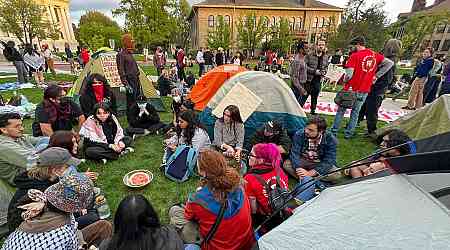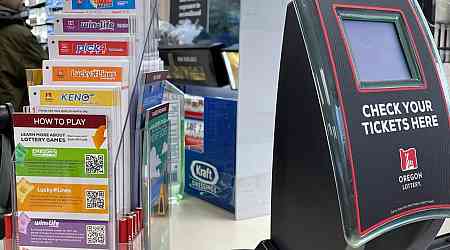It could get easier for educators to obtain a teaching license in Utah through a new bill aimed at studying changes to current licensing programs.
But opponents are hesitant, arguing that it could lead to less-qualified teachers in schools, which they say can worsen teacher retention rates.
Under HB208, the Utah State Board of Education and Utah Board of Higher Education would be required to develop a strategy by 2028 that would alter how teachers can currently get a license. The bill passed out of the Senate Education Committee on Wednesday.
The bill’s purpose, said sponsor Rep. Norm Thurston, R-Provo, is to simplify the current traditional and alternative licensure processes, because he believes “some of those are frankly a little bit weak, and they don’t necessarily produce teachers that have the competencies.”
“They just have a lot of bureaucratic hoops that people have to jump through. Even though they’re qualified, they can’t get the license,” Thurston told fellow lawmakers at a Senate Education Committee meeting last week. Some of the obstacles he said include fees for background checks, or paraeducators who want to get recertified as teachers but don’t feel they have the time to do so.
The proposal would also prohibit USBE from requiring a “pedagogical performance assessment” in order to receive a teaching license.
The assessments test a prospective licensure candidate in “the basic art of teaching” such as theories and principles of classroom management skills, said Renée Pinkney, president of the state’s largest teachers union, the Utah Education Association. They involve educators documenting and analyzing their own instruction strategies and practices.
“Those classroom-management skills come into play in every single class that you teach,” no matter what education level or subject, Pinkney said. “What might work with one set of students might not work with another, but you have a tool bag that you can pull from.”
‘We don’t want unqualified teachers’
Thurston noted that under the proposal, the assessments could still be administered. But the removal of the requirement drew concerns from Democratic State Sen. Kathleen Riebe about how teacher competency would be determined.
Riebe said she believes the state has enough pathways to obtain a teacher license, and that if the state continues to reduce requirements, it could harm students.
The state currently has three types of licenses: 1) a professional license, where all requirements of licensing are met and competencies demonstrated — typically through a traditional higher education preparation program; 2) an associate license, where a minimum number of requirements are met and/or competencies are met; and 3) a Local Education Agency-specific license, where criteria is determined by school districts or charters.
According to a report from the Kem C. Gardner Policy Institute, teachers who go through a traditional professional licensing program tend to see higher retention rates compared with those who receive an associate or LEA-specific license.
The report defines a teacher who doesn’t hold a professional license as “underqualified.”
“I don’t understand the benefit of making it easier for kids to be in front of somebody who’s not qualified,” Riebe said.
Thurston said in lieu of a pedagogical performance assessment, under the proposal, a principal could write up an evaluation and vouch for a teacher they’ve known for 10 years, for example.
He added that studying the current licensing programs stands to “strengthen the programs that are weak” and simplify the programs that are “over-bloated.”
“We don’t want unqualified teachers,” he said of the bill.
‘They are learning on the job’
Pinkney argued that even studying potential changes to current licensing programs could put more pressure on existing and veteran teachers.
“By nature, teachers are helpful, and so oftentimes, when we have educators who don’t have the same level of experience … they are learning on the job, and the veteran teachers become their mentors,” Pinkney said. “It just adds to our workload, because we want to help them; we want them to be successful.”
Should those teachers then end up leaving within five years, it would be a large financial cost to school districts, she added.
Still, Pinkney said she could see the current programs not changing even if the study is passed, as “I would imagine that what we have in place is working.”
“We know that the traditional program is more likely to result in highly qualified educators who are walking in the door prepared on day one,” she said.
And that’s who Riebe said she wants to see in classrooms — qualified people who can “jump through basic hoops” to fulfill the requirements of being a teacher.
“I believe that my child is more important than these arbitrary hoops that you’re talking about,” Riebe expressed to Thurston. “I believe the kids in my schools are important, so I don’t think we should be making it easier for people to get into the classroom.”



























